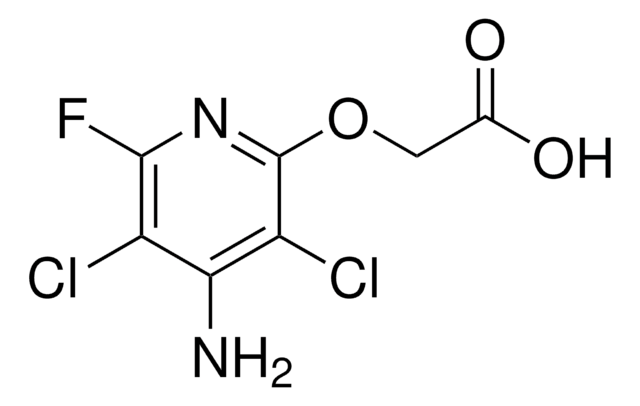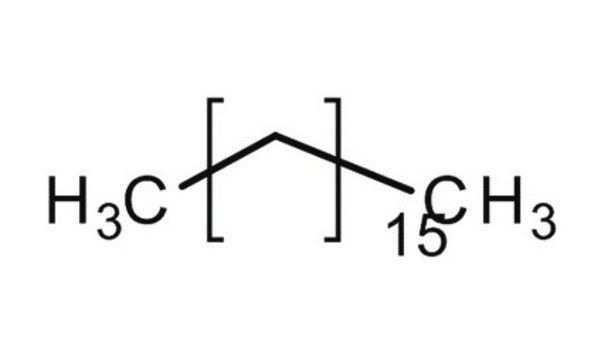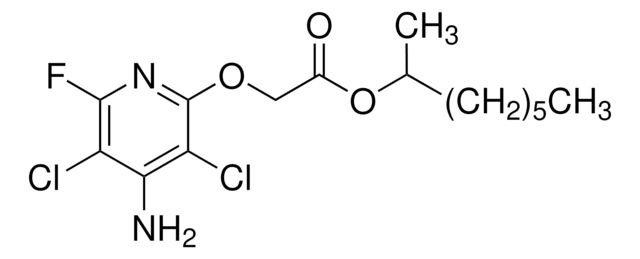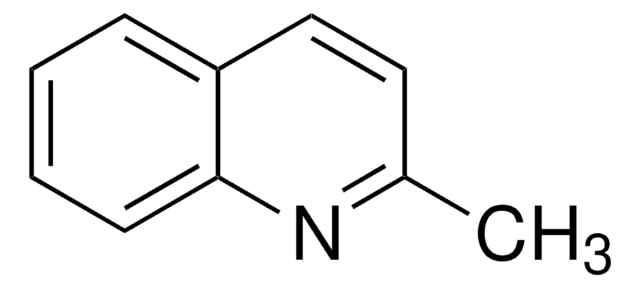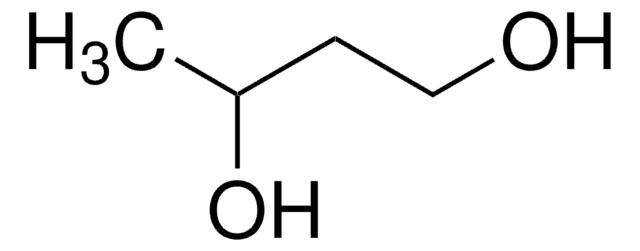About This Item
Recommended Products
grade
analytical standard
Quality Level
vapor density
8.3 (vs air)
vapor pressure
1 mmHg ( 115 °C)
Assay
≥99.5% (GC)
shelf life
limited shelf life, expiry date on the label
technique(s)
HPLC: suitable
gas chromatography (GC): suitable
refractive index
n20/D 1.436 (lit.)
bp
302 °C (lit.)
mp
20-22 °C (lit.)
21-23 °C
density
0.777 g/mL at 25 °C (lit.)
application(s)
petroleum
format
neat
SMILES string
CCCCCCCCCCCCCCCCC
InChI
1S/C17H36/c1-3-5-7-9-11-13-15-17-16-14-12-10-8-6-4-2/h3-17H2,1-2H3
InChI key
NDJKXXJCMXVBJW-UHFFFAOYSA-N
Looking for similar products? Visit Product Comparison Guide
General description
Application
- Bio-oils of bocaiuva residues by two-dimensional gas chromatography (GC x GC) coupled to time-of-flight mass spectrometry (TOFMS) equipped with electron impact (EI) ionization.
- Cyanobacterial culture media by head-space solid-phase microextraction (HS-SPME) combined with GC-MS.
- Soil samples by ultrasonic extraction and silicone chromatography column purification, followed by analysis using GC coupled to flame ionization detector (FID) and GC-MS operating on selected ion monitoring (SIM) detection mode.
- Stem ethanolic extracts of Cayratia trifolia by GC-MS.
- Crude oils by SPME-GC combined with isotope ratio mass spectrometry (IRMS).
Recommended products
Signal Word
Danger
Hazard Statements
Precautionary Statements
Hazard Classifications
Asp. Tox. 1
Storage Class Code
10 - Combustible liquids
WGK
WGK 1
Flash Point(F)
300.2 °F - closed cup
Flash Point(C)
149 °C - closed cup
Personal Protective Equipment
Choose from one of the most recent versions:
Already Own This Product?
Find documentation for the products that you have recently purchased in the Document Library.
Customers Also Viewed
Our team of scientists has experience in all areas of research including Life Science, Material Science, Chemical Synthesis, Chromatography, Analytical and many others.
Contact Technical Service
